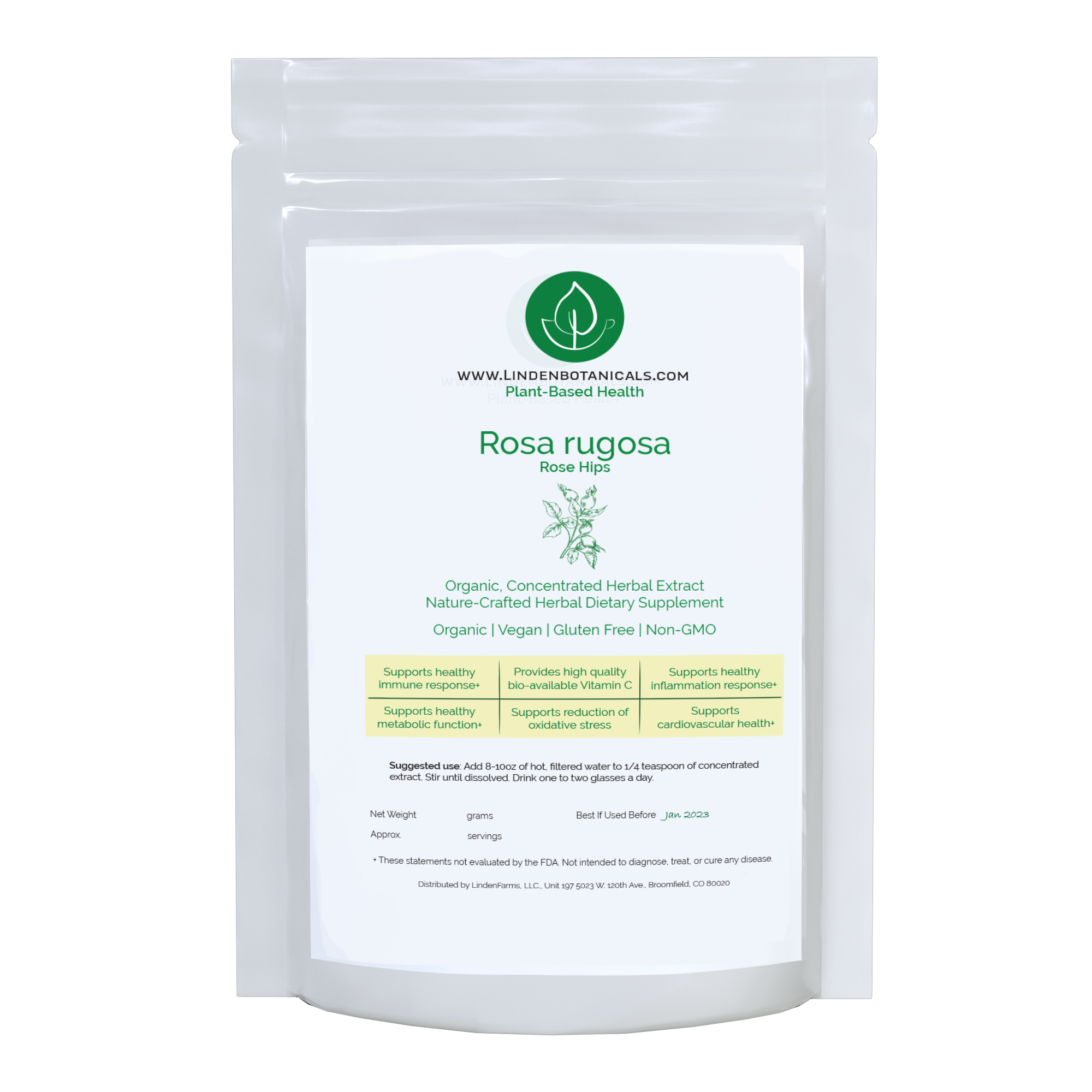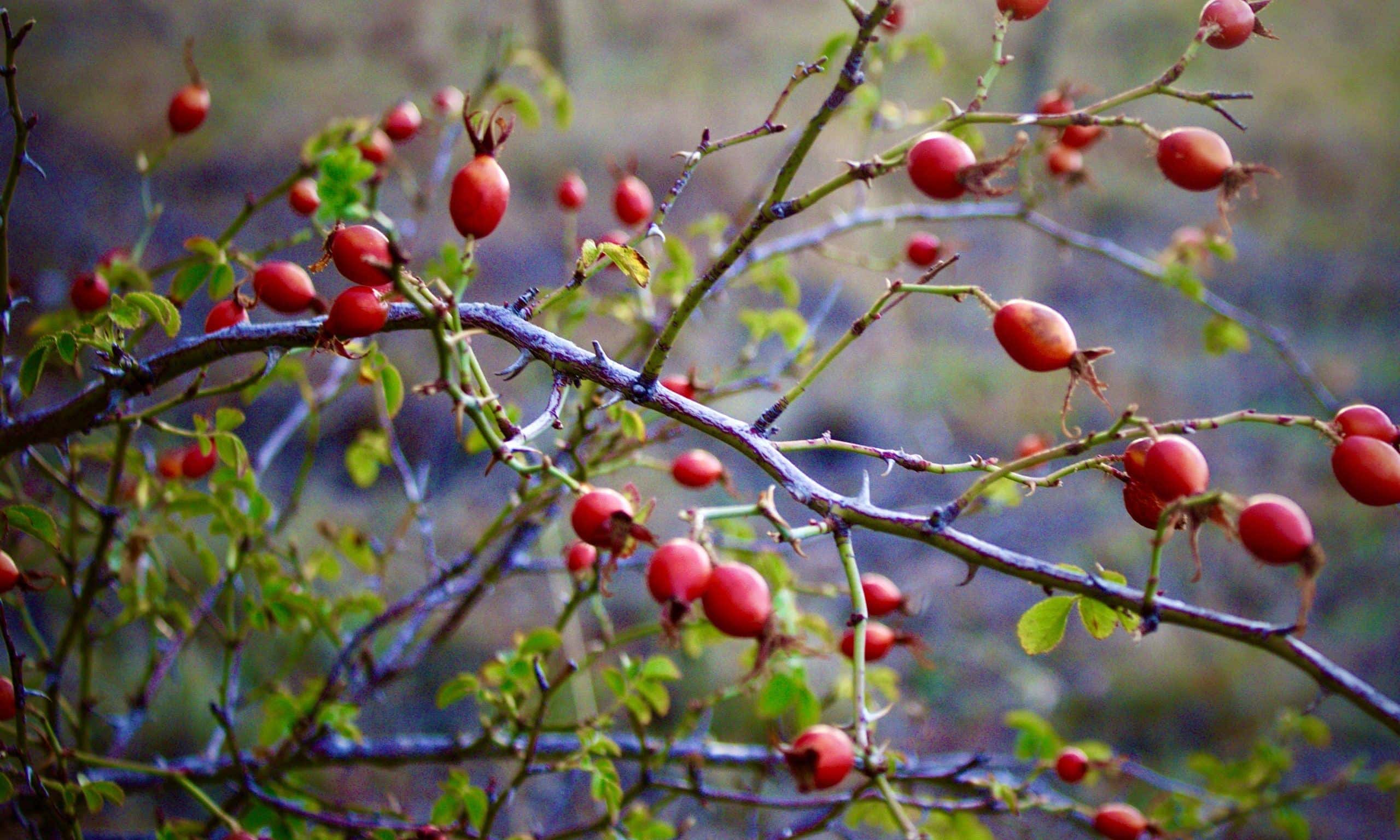
Rosa rugosa (Rose Hips) Extract
All-natural vitamin C to help reduce the symptoms and duration of colds and flus. Rosa rugosa (Rose Hips) is rich in bioflavonoids. Its antioxidant, antibacterial, anti-retroviral, and anti-inflammation properties provide immune support to help combat colds and flu and the frequency and onset of urinary tract infections.
Price: From: $15.99 ➙ Never Run Out with Autoship — available on subscription
Romance your health with Rosa rugosa. The seed pod of the rose — also known as Rose Hips, Chinese Rose, Maikaika, Eglantine Gall, Rosa Gallica, Bud of Chi, Japanese Rose Flower, Rosae rugosae Flos, and Tomato Rose — is a valuable source of natural Vitamin C. It contains unique polysaccaride-peptides that can help the body maintain a healthy balance.
Rosa rugosa is native to northern China, Korea, and Japan. It is a bristly, prickly, sprawling, suckering shrub rose that typically grows in a rounded form to 4-6′ tall and just as wide. Unless restrained, it will over time spread to form dense thickets. It has fragrant flowers that are rose pink to white and up to 3 1/4″ across. Its petals, flower buds and hips are commonly consumed for production of jams, teas, pies, juices and beverages.
Rosa rugosa Health Benefits
In traditional medicine systems, Rosa rugosa tea has been used to reduce swelling, strengthen the spleen, relieve the depressed liver, and promote healthy blood circulation. It has also been used to heal wounds faster, prevent ulcers, improve eyesight, and promote heart health.
Rosa rugosa extract is rich in bioflavonoids, polyphenols, and peptides. Our extract, standardized to 20% vitamin C content, can help reduce the symptoms and duration of colds and flu. Studies have shown that it has powerful antibacterial, anti-retroviral, and inflammation-reducing activity. It can relax and calm colic. Its antioxidant active ingredients can help purify the body from the inside, which can improve the appearance of the skin in general and help regulate the imbalances that cause acne.
Rosa rugosa may also help reduce joint pain and help support healthy adrenal function. Its unique polysaccaride-peptides can help the body maintain a healthy balance.
Optimize Your Health with Rosa rugosa
Rosa rugosa extract shows promise as a highly effective antibacterial, anti-retroviral, and anti-inflammatory agent that may support the immune system against numerous types of infections. Due to its broad-spectrum activity, Rosa rugosa could be a highly beneficial supplement to health protocols for anyone seeking to improve metabolic function and optimize overall health.
Resources:
Traditional Chinese Medicine and other traditional medicine systems suggest Rosa rugosa may support:
- Healthy immune function
- Healthy reduction of oxidative stress
- Healthy heart function
- Healthy skin
- Healthy metabolic function
- Healthy inflammatory response
Serving Suggestion
Suggested use: 1-2 grams of extract per a day. Mix into your non-dairy drink of choice. For example, add 1-2 grams to a large mug of tea, or dissolve 1 gram into 8oz of hot water. Drink 2-3 times a day.
Additional information
Traditional Chinese Medicine uses Rosa rugosa to support stomach cleansing, liver nourishment, and blood circulation. It is considered an astringent, carmative, and tonic. It is often consumed to reduce the severity and shorten the duration of the flu. Ethnomedical traditions include using Rosa as an antidepressant, a diuretic, and support for improved eyesight. Other traditional uses include supporting digestion and promoting healthy skin.
Rose Hips, Chinese Rose, Maikaika, Eglantine Gall, Rosa Gallica, Bud of Chi, Japanese Rose Flower, Rosae rugosae Flos, and Tomato Rose.
- Ellagic acid
- Echinacoside
- Vitamin C
- Vitamin E
- Lycopene
- Polyphenols
- ferulic acid
- caffeic acid
- p-coumaric
- chlorogenic acid
- Flavonoids
- quercetin
- tilirosides
- quercetin 3-O-β-glucoside (isoquercitrin)
- kaempferol a
- kaempferol 3-O-fl-glucoside
- rutin
- apigenin
- tiliroside
- apigenin-7-O-glucoside
- kaempferol-3-O-rutinoside
- Phenylethanoid glycosides
- Acteoside
- 2′-Acetylacteoside
- Polysaccharide–peptides
- Demethyl-glucoacteoside
- Arabinose
- Galactose
- galacturonic acid
- rhamnose
- mannose,
- mannoglucan
- arabinogalactan
- glucan
- Triterpenoids
- euscaphic acid
- tormentic acid
- Tannins
No known side effects if consumed in moderation.
| Weight | 75 g |
|---|---|
| Weight | 20g, 50g, 100g, 200g, 250g, 500g |













